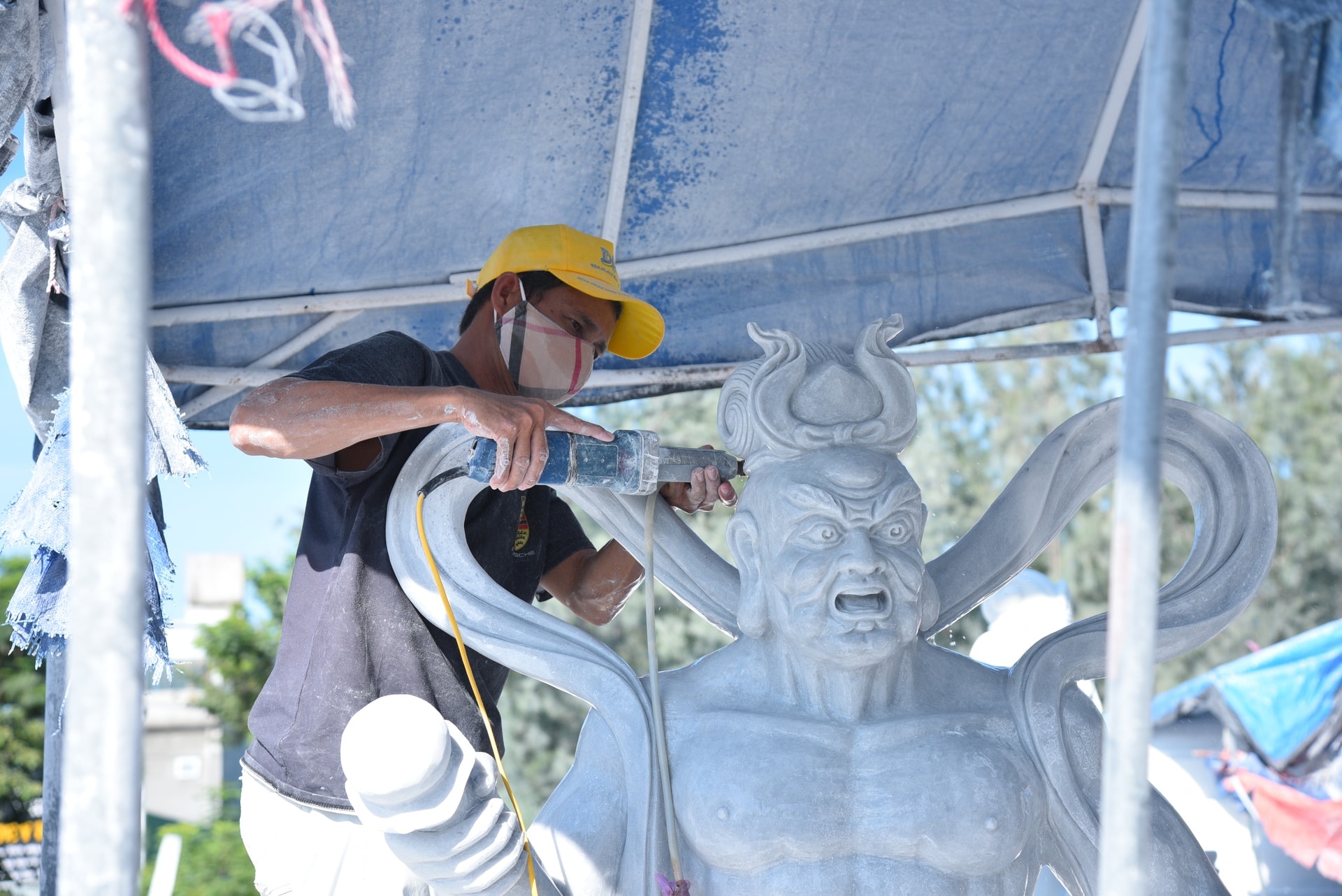DNO - In the context of integration and development, the Non Nuoc Stone Carving Craft Village in Da Nang's Ngu Hanh Son Ward has proactively been applying modern equipment to promote and enhance the value of its traditional craft products.

With a history spanning around 400 years, the Non Nuoc stone carving craft was recognized as a National Intangible Cultural Heritage in 2014. Through many ups and downs of history, the Non Nuoc Stone Carving Craft Village still retains its strong vitality and continues to grow today.
Currently, the village has 385 production establishments with about 1,250 workers, most of whom are local people. Its products are diverse ranging from household items to sophisticated jewelry in various colours, sizes and genres, and large statues of deities and sacred animals as well.
To meet growing market demand, the carving establishments have adopted modern technologies in both design and manufacturing.
Notably, since 2023, the craft village has coordinated with relevant units to apply blockchain 4.0 technology to its products. This is also the first craft village in the country to integrate blockchain chips into traditional handicraft products.
Currently, unique, high-value works of the village, priced about VND 500 million or more, are all embedded with blockchain chips.
This technology allows customers to easily verify the origin, crafting process, creator, and artistic meaning of each piece, thereby ensuring transparency, protecting intellectual property rights, and enhancing product value.

In addition to technological innovation, preserving traditional values remains a priority. Local authorities, in coordination with artisans, have organized training programs to pass down traditional skills, while encouraging younger generations to pursue studies in fine arts and technology to continue and expand the craft.
The People’s Committee of Ngu Hanh Son Ward has tasked the management board of the village with developing a tourism-linked project.
In particular, a traditional house showcasing products, honoring artisans, and creating interactive experiences for visitors will be built on an area of 5,000m2. It is expected to be put into operation by the end of 2026.
In the future, visitors to the craft village can take a tour from the traditional house and the ancestral temple to the experience space in order to have a comprehensive view of the formation and development of the Non Nuoc Stone Carving Craft Village.